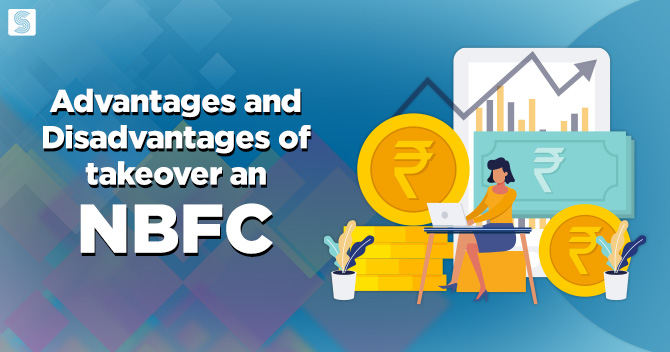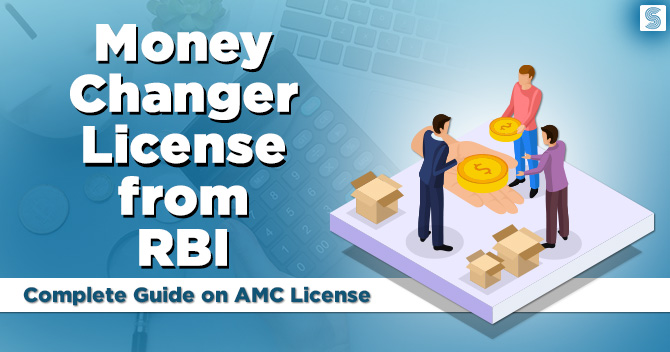All you need to know about NBFC-P2P License in India

Dashmeet Kaur | Updated: Oct 12, 2019 | Category: NBFC, RBI Advisory
RBI framed a well structured regulatory platform of Peer to Peer lending operators. Abbreviated as P2P, Peer to Peer is an online service portal for lending money that matches the requirements of lenders with borrowers. Another such financial intermediary is NBFC, which stands for Non-Banking Financial Companies (NBFCs). It is a large group of entities that perform different financial activities. There are several NBFCs in India spanning from infrastructure debt funds to Micro Finance institutions (MFIs). According to RBI October 2017 circular, the P2P entities have to be regulated as Non-Banking Financial Company-Peer to Peer, resulting in (NBFC-P2P). To have a better understanding of the term NBFC P2P, one needs to perceive both these terms one by one.
Table of Contents
What is NBFC?
The Reserve Bank of India (RBI) defines NBFC as ‘a non- banking financial company registered under the Companies Act, 1956 immersed in the business of loans and advances.’ It is a financial institution that does not possess a banking license despite that it plays an essential role in rendering financial services. NBFCs contribute about 24.3% GDP to the Indian economy in contrast to the banks with 21.4%.
RBI Restrictions on NBFCs
NBFC, just like banks lend and make investments with the public; there are some strict guidelines issued by RBI that every NBFC has to follow:
- NBFCs cannot accept demand deposits from any source.
- NBFC cannot issue cheques drawn on itself.
- NBFC can’t form part of the payment and settlement system.
- Depositors of an NBFC can’t have the facilities of the deposit insurance scheme.
Pros of NBFCs over Banks
In spite of sharing many similarities with banks, NBFCs give several benefits that banks fail to provide:
- More Profitable
NBFCs are way more profitable than banks; they help in providing loans to customers at lower interest rates. As banks have strict regulations and substantial paperwork, it hampers the needs of customers; thus, people prefer NBFCs over banks. - Rapid Loan Process
It goes without saying that since there NBFC follows a simple process without many formalities; its loan process is faster. - Easy Registration
NBFC registration online is easier than attaining a bank license. - Convenient Repayment
As NBFC does not issue a penalty clause; it becomes convenient for the customers to repay the loan at any time.
After accomplishing a dominant position, NBFCs have expanded its basket by introducing Peer-to- Peer (P2P) lending platforms, which get recognized by RBI as NBFC-P2P.
An Overview NBFC-P2P
Non-Banking Financial Companies – Peer to Peer Lending Platform (NBFC-P2P), is a non-banking institution which underpins the business activities of a Peer to Peer Lending Platform. P2P platforms have rapidly gained popularity with small businesses. It proves to be a better option to raise funds.
Advantages of NBFC-P2P
The NBFC-P2P is a blessing for small business; let’s have a look at the perks it provides to MSME:
- Lower Rate of Borrowing
P2P lending directly connects the lenders with the borrowers via a digital platform; thus, it removes the role of intermediary and assures lower interest rates. - Increased alternative Supply of Credit
Earlier, the supply of credits was limited to big banks and financial institutions, but NBFC-P2P has broken this norm. It has created an alternative supply of credit by helping the customers convert their savings into an asset class. NBFC-P2P saves borrowers breaking away from exploitative practices of unorganized sectors and facilitates access to cheaper credit. - Simple Loan Process
NBFC-P2P eases the process of getting a loan, which is the biggest reason behind its popularity. Unlike, the traditional sources of financing that are long and time-consuming; NBFC-P2P cuts the unnecessary processes and takes faster decisions. It also safeguards the interest of both the lender and borrowers.
Eligibility Criteria of NBFC-P2P License
Following is the list of things you must have to obtain NBFC-P2P license as per RBI:
- Every NBFC-P2P shall procure a certificate of registration to start P2P lending activities before working on operations.
- Every company wanting NBFC-P2P registration with the RBI must have a net owned fund of not lesser than rupees twenty million, i.e., Rs 2 crores or a higher amount as specified by RBI.
- After receiving the applications, RBI may verify and grant NBFC status for providing P2P lending.
- All P2Ps must avail a registration from RBI as an NBFC. However, an existing NBFC will not be able to operate as an NBFC-P2P.
Regulations for NBFC-P2P
- NBFC-P2P shall become member of all CICs and must submit all the data including historical data to them.
- The loan recovery practices of NBFCs will apply to P2Ps. The loan recovery practices of NBFCs will apply to P2Ps. The fund should directly be transferred from the lender’s bank account to the borrower’s bank account. Thus, it helps in checking the status of money laundering.
Bottomline
NBFC-P2P is an efficient source of funding for both small businesses and large organizations. It provides an online platform wherein there is less paperwork and cuts intermediary cost, therefore, rendering faster & cheaper credit. NBFC-P2P offers hope to the large numbers of the unbanked and under-banked population of India.
Read our article:Challenges faced by Entrepreneurs while Starting an NBFC in India















